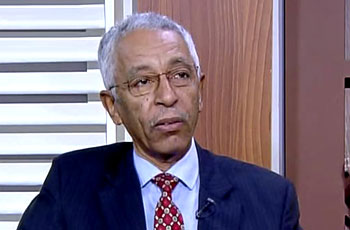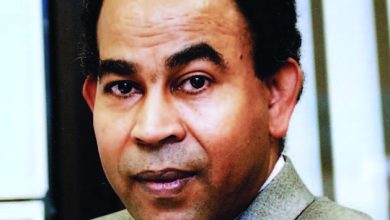Diverting Attention from Aggression and Using its Outcomes as a Pretext for Attack!

By Dr. Al-Khidr Haroun
We may have repeated over the past three decades that Sudan is not among the countries considered by the United States to be worthy of its attention or part of its national security strategies and vital or significant interests. Despite Sudan’s evident wealth and strategic location along an important international trade route—the Red Sea—Sudan has at times been a concern due to fears that it could threaten these interests. Sudan first drew attention when there were concerns it might become a platform for communist infiltration during the Cold War before communism declined as a governing ideology. Today, similar fears arise that Sudan might become a base for Russian or Chinese influence or a threat to America’s allies in the region. These allied nations, of strategic importance to the U.S., are not questioned about their internal governance or how they treat their citizens; they are free to act as they please as long as they remain economically vital or serve as strategic military outposts, like Israel.
Regarding Sudan and America, Donald Patterson, the U.S. ambassador to Khartoum from 1993 to 1996, mentioned in his book *Inside Sudan* that America was never comfortable with Sudan’s positions since its independence, as Sudan leaned more towards the Eastern Bloc. For example, Sudan, under the regime of General Abboud, recognized the People’s Republic of China during the height of America’s war in Vietnam—ten years before the U.S. itself recognized China. Also, Joseph Brezhnev, the Chairman of the Soviet Supreme Council, visited Sudan in the 1960s, as did Josip Broz Tito of Yugoslavia and the Prime Minister of Hungary, who offered Sudanese students scholarships in 1970. For countries deemed less important, the U.S. often employs the carrot-and-stick approach, forcing absolute compliance within set limits. When such nations step beyond these limits, the U.S. justifies sanctions or intervention using accusations like violating international laws, lacking civil democratic governance, human rights abuses, or minority oppression—paradoxically, often intervening in humanitarian crises they themselves have exacerbated.
Several regrettable incidents have marred Sudan-U.S. relations, such as the killing of the U.S. ambassador and his deputy in 1973 by the Palestinian Black September group during a reception at the Saudi embassy in Khartoum. Moreover, in 2008, the killing of John Granville, a U.S. aid worker, by extremists in Khartoum further tainted relations and contributed to a negative image of Sudan, providing justification for punitive measures against the country.
America approached Sudan during the Cold War on two occasions. The first was during the rise of Nasserism and leftist movements, including communist parties—arms of the Soviet Union—when U.S. President Eisenhower sent his Vice President Richard Nixon to Sudan to offer developmental aid to counter communist influence. The second was when the Aden Pact was formed, comprising Siad Barre’s Somalia and Mengistu Haile Mariam’s Ethiopia, with the latter supporting the Sudan People’s Liberation Movement led by Colonel John Garang, who initially described his movement as Marxist-Leninist. To counter the communist influence, the U.S. extended support to Sudan’s President Jaafar Nimeiry, who had broken ties with the local and international left and aligned himself with the West, led by America.
America’s interest in southern Sudan increased when Nimeiry declared Islamic Sharia law in 1983, further escalating the civil war between the north and south. This heightened focus on the south solidified during the rise of the National Islamic Front and the Arab Islamic Congress, sparking fears from neighboring countries and attracting America’s attention. These factors helped shape a frightening image of Sudan in the American mind.
Sudan is not among the countries that America considers part of its vital interests. This allows lobbying groups, research centers, and sometimes newspapers to influence American policy towards less significant countries like Sudan, as detailed in Rebecca Hamilton’s article for Reuters on how a small group worked since the 1980s to ultimately divide Sudan.
Further complicating matters, recent U.S. envoys, like Tom Perriello, have continued this trend of mismanagement, failing to engage with the entire Sudanese population and instead favoring a small group, insisting that this group alone represents all Sudanese people and should form the transitional government. This has exacerbated the ongoing conflict and widened the divide, contributing to the current aggression against the Sudanese people.
The real solution, however, lies not in yielding to external pressures but in legitimate resistance, as provided for by international law under the United Nations Charter. Sudan must appeal to international courts, regional organizations, and the free peoples of the world to resist this aggression, for the challenges Sudan faces today are of unprecedented gravity, threatening not only the state but also its people and their rich heritage.



